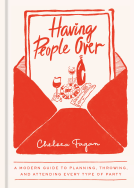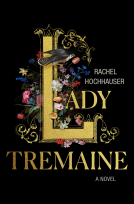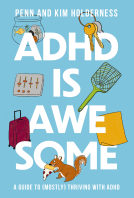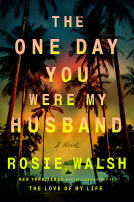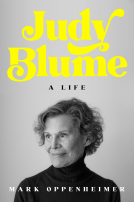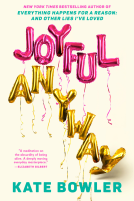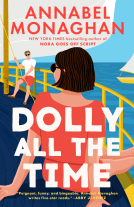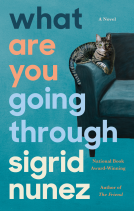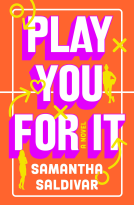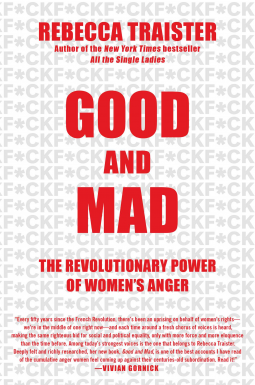
Good and Mad
The Revolutionary Power of Women's Anger
by Rebecca Traister
This title was previously available on NetGalley and is now archived.
Send NetGalley books directly to your Kindle or Kindle app
1
To read on a Kindle or Kindle app, please add kindle@netgalley.com as an approved email address to receive files in your Amazon account. Click here for step-by-step instructions.
2
Also find your Kindle email address within your Amazon account, and enter it here.
Pub Date Oct 02 2018 | Archive Date May 31 2020
Simon & Schuster | S&S/ Marysue Rucci Books
Description
***BEST BOOKS OF 2018 SELECTION BY***
* WASHINGTON POST * People * NPR * ESQUIRE * ELLE * WIRED * REFINERY 29 *
“In a year when issues of gender and sexuality dominated the national conversation, no one shaped that exchange more than Rebecca Traister. Her wise and provocative columns helped make sense of a cultural transformation.”—National Magazine Award Citation, 2018
“The most brilliant voice on feminism in this country.”—Anne Lamott, author of Bird by Bird
From Rebecca Traister, the New York Times bestselling author of All the Single Ladies comes a vital, incisive exploration into the transformative power of female anger and its ability to transcend into a political movement.
In the year 2018, it seems as if women’s anger has suddenly erupted into the public conversation. But long before Pantsuit Nation, before the Women’s March, and before the #MeToo movement, women’s anger was not only politically catalytic—but politically problematic. The story of female fury and its cultural significance demonstrates the long history of bitter resentment that has enshrouded women’s slow rise to political power in America, as well as the ways that anger is received when it comes from women as opposed to when it comes from men.
With eloquence and fervor, Rebecca tracks the history of female anger as political fuel—from suffragettes marching on the White House to office workers vacating their buildings after Clarence Thomas was confirmed to the Supreme Court. Here Traister explores women’s anger at both men and other women; anger between ideological allies and foes; the varied ways anger is perceived based on its owner; as well as the history of caricaturing and delegitimizing female anger; and the way women’s collective fury has become transformative political fuel—as is most certainly occurring today. She deconstructs society’s (and the media’s) condemnation of female emotion (notably, rage) and the impact of their resulting repercussions.
Highlighting a double standard perpetuated against women by all sexes, and its disastrous, stultifying effect, Traister’s latest is timely and crucial. It offers a glimpse into the galvanizing force of women’s collective anger, which, when harnessed, can change history.
Available Editions
| EDITION | Other Format |
| ISBN | 9781501181795 |
| PRICE | $27.00 (USD) |
| PAGES | 320 |
Average rating from 42 members
Featured Reviews
 Reviewer 442170
Reviewer 442170
I'd originally planned on reading Good and Mad in one or two sittings, but, in the end, I had to read it in small digestible morsels over the course of weeks. Otherwise, my rage threatened to boil over...
I don't know why it surprised me, but reading Good and Mad made me so mad! It didn't make me angry at the book itself—this book should be required reading for any person looking to gain further insight into the #MeToo movement, as well as the evolution of fourth-wave feminism—but more at the fact that it had to be written in the first place.
It's 2018, and yet, (American) women continue to face sexual harassment and assault in the workplace, and beyond. (I put "American" in parentheses because that's what this book mainly focused on, even though—clearly—these things happen to women worldwide.) We continue to be gaslit (gaslighted?) regarding our anger, told that the injustices we've faced did not really happen to us at all. We've been told not to be angry, and instead to be happy that we have it so good.
Traister's historical approach to this topic was very informative. While the largest portion of the book was devoted to the most recent eruption(s) of women's rage in politics and other industries in the U.S. (c. 2016 to the present), there were many points throughout the book in which Traister discussed women's rage in the past, starting with the suffragettes and moving into second-wave feminism of the '60s, and eventually covering the '90s, with particular focus on Anita Hill. This was helpful for me, for while I've tried to educate myself over the last decade or so in feminist history, there is still so much for me to learn.
Importantly, Traister addresses how women of color receive the brunt of the backlash against being angry, and how white women often tone down their anger in order to get ahead, at the expense of the rights of women of color. Traister also writes about how the so-called Stonewall Riots ("so-called" because those who started them did so as an act of civil disobedience and not as riots) were sparked by the anger of transwomen and lesbians, many of whom were people of color, something that is often erased when white men today tell the story.
Still, the main thing I got out of this book wasn't the history, or the examination of how and why women continue to be mad today, or what actions we should take next to eradicate sexism, it was the fact that I'm not alone in my anger. This may seem like a superficial thing to get out of a book. I mean, of course I'm not alone; all women have experienced, or will experience, discrimination and inequality at some point in their lives. But reading about other women's experiences in this book still helped me to realize that my feelings and experiences are valid.
Readers who liked this book also liked:
Penn Holderness; Kim Holderness
Health, Mind & Body, Parenting, Families, Relationships, Self-Help
Ellie Roscher and Dr. Anna Baeth, foreward by Chris Mosier
LGBTQIAP+, Nonfiction (Adult), Sports



